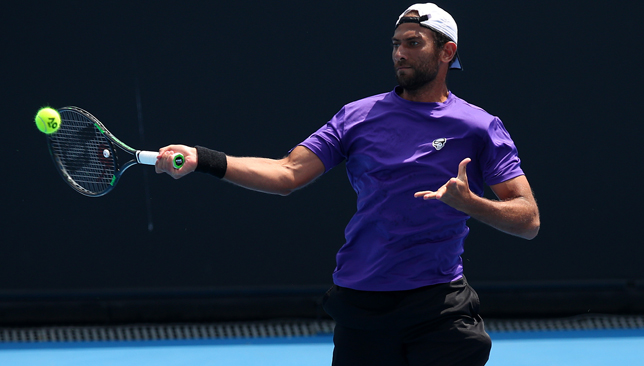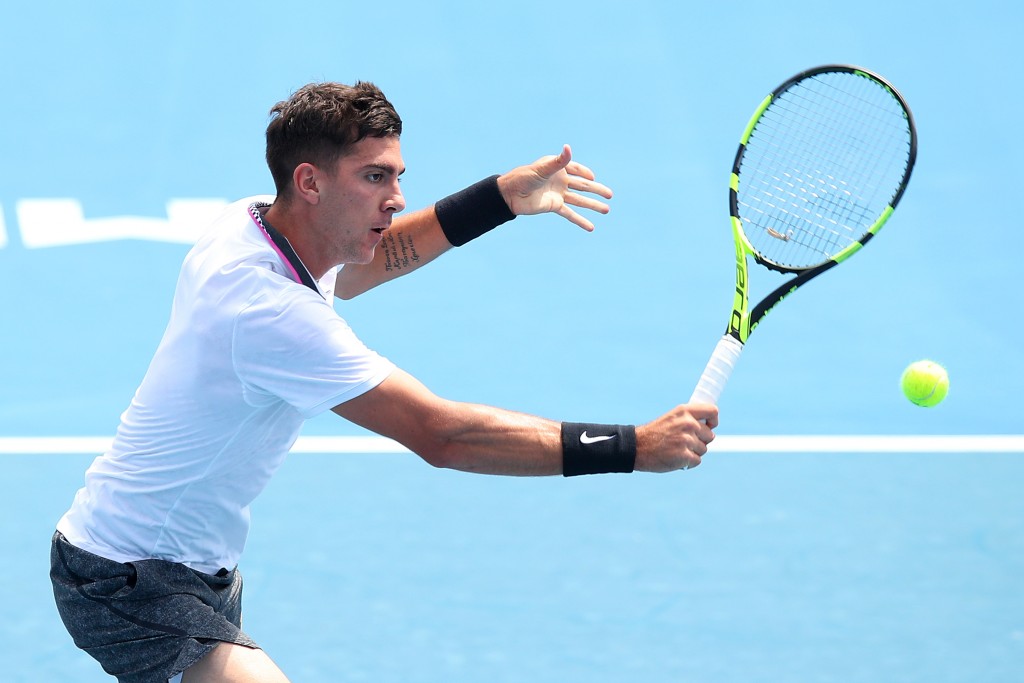
Egypt’s Mohamed Safwat crashed out early in Australian Open qualifying but insists his game is moving in the right direction at the start of this new 2019 season.
The 28-year-old Safwat lost 6-2, 7-6(4) to home favourite Thanasi Kokkinakis in the first round of qualifying on Tuesday at Melbourne Park, in a clash that was a lot tighter than the scoreline may indicate.
Kokkinakis raced to a 4-0 lead in the opening set, but had to save break points in both his service games en route. The 145th-ranked Aussie had match points on Safwat’s serve in the eighth game of the second set, but he broke a string on the first one, and the Egyptian held for 4-5. Serving for the match the following game, Kokkinakis was broken for the first time in the match. Safwat forced a tiebreak and came back from 0-3 down in it, but Kokkinakis recovered and secured the win.
“That’s a very funny situation which I’m not going to comment on but I knew this could be a possibility from a few months ago,” Kokkinakis said when asked about being overlooked for a wildcard.
“Qualies is tough, the level is the level, there are obviously a lot of good players in main, a lot of good players in qualies but getting through three matches is not easy. A lot of times I look ahead, but I’m going to try and take it one match at a time and focus because as you see, if you lose focus there it can get yucky.”

He added: “I have a lot of motivation but it’s trying to find the balance between being calm and playing calm and being too fired up until you’re very nervy on court just because you want to prove [something] to some people. I’m just going to try to play my game, I know where my level is at, I know I just got to focus and I can play good enough.”
He described Safwat as “sneaky good” and was happy to get through in straight sets.
On his part, Safwat admits his low conversion rate on break points is something he is actively working on (he won 1/5 break points on Tuesday) but feels he is making some progress in that department.
“I was working on the past month, to improve my success rate on break points. How to win them, what’s happening, what’s the best way to win them? If I look at all my matches, I think today I had like five break points and I won just one and if I just raise it a bit by 10 per cent, it will add up in a lot of matches,” Safwat said.
“I’ve been working on this. It’s an important step to win those more crucial points. Because for me, like today, I didn’t feel my forehand, which is my biggest weapon, but I still managed to compete and I still managed to have my chances. So it wasn’t about forehands, backhands, serve, it’s about getting those crucial moments and raise my ratio at break points.”
Looking ahead this new season, Safwat isn’t setting any ranking targets but has some other goals in mind.
“To be honest, what I’m trying to achieve for the next few weeks is to stay the course, not really lose my course, to be very clear on what I want to do and even if it doesn’t work out – like for me in the match for example, last week it wasn’t really working for me, the thinking of converting break points better but today, I had a lot, but with three of them I really did well but I was unable to finish off the point. So it’s going forward in the right direction. I just want to stay clear in what I want to do and not get distracted by winning or losing. That’s my realistic target,” he says.
Another tight service game for Kokkinakis but he saves break point and holds for 4-0 🆚 Safwat. pic.twitter.com/y3HihCEAPQ
— Reem Abulleil (@ReemAbulleil) January 8, 2019